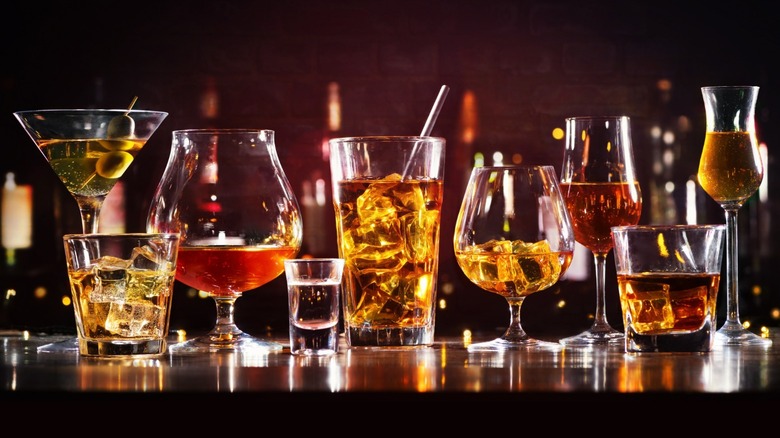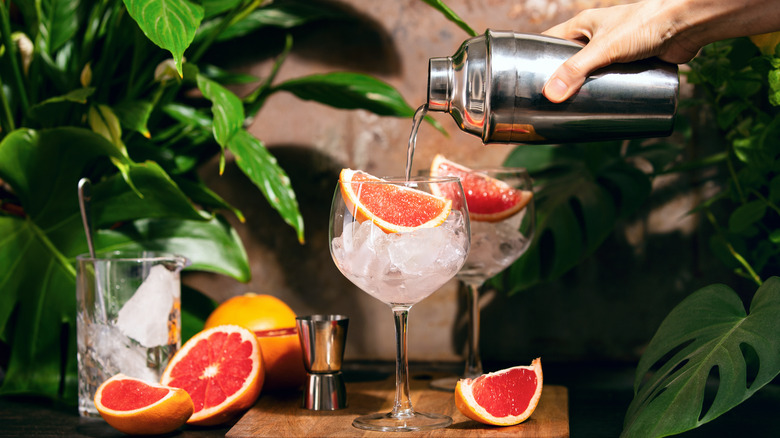How The Cocktail Hour Got Its Boozy Start
"It's five o'clock somewhere," goes the age-old saying. Baked into American society seems to be the notion that the period of time somewhere between 5 p.m. and 7 p.m. is the cocktail hour, that magical part of the day where you come home from work and unwind with a stiff drink. This notion obviously came from somewhere, but where? We decided to dig into how the cocktail hour got its boozy start.
While mixed drinks have been around for ages, the drinks we currently think of as cocktails were truly popularized during the Jazz Age and ensuing Prohibition years. Pre-Prohibition it was completely normal for Americans to consume alcohol all day long, even having a drink with breakfast. Post-Prohibition, hotels and swanky clubs in cities like New York and Los Angeles were already serving cocktails, and in the 1950s the tradition of serving cocktails started to take hold in households across the country.
As to how it got its own hour, there are those who think it might have had something to do with the late-afternoon tea services at many hotels deciding to add cocktails to the menu, while others point to the British aristocratic tradition of gathering for a drink before dinner being translated for suburban American homes. Supposedly the first recorded cocktail party, in St. Louis, Missouri, lasted exactly one hour.
Our idea of cocktail hour is a more recent invention
Today's modern idea of a cocktail hour, that part of time somewhere in the early weekday evenings after work (at home or at a bar) is a far more recent invention, however. After that post-Prohibition cocktail craze of the 1950s and early 1960s craft cocktails virtually disappeared from the dining scene. An interest in Prohibition-era cocktails caught hold in the 1990s, and with it, the concept of the cocktail hour returned. In states where it was legal, the cocktail hour became synonymous with happy hour, where certain drinks could be bought at a discount during certain hours (although believe it or not, happy hour wasn't originally invented to sell more drinks.) The tradition has even extended to weddings, where a cocktail hour between the ceremony and reception is now practically de rigueur.
Historically, then, cocktails begat the cocktail hour, even though it has taken on a few different forms over the past couple of centuries. It may be impossible to trace the cocktail hour to one single person, institution, or tradition, but however it got here, it's clear that the cocktail hour is now cemented into American dining and drinking culture.

